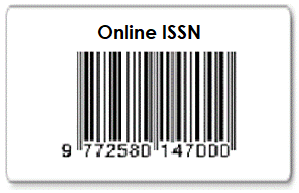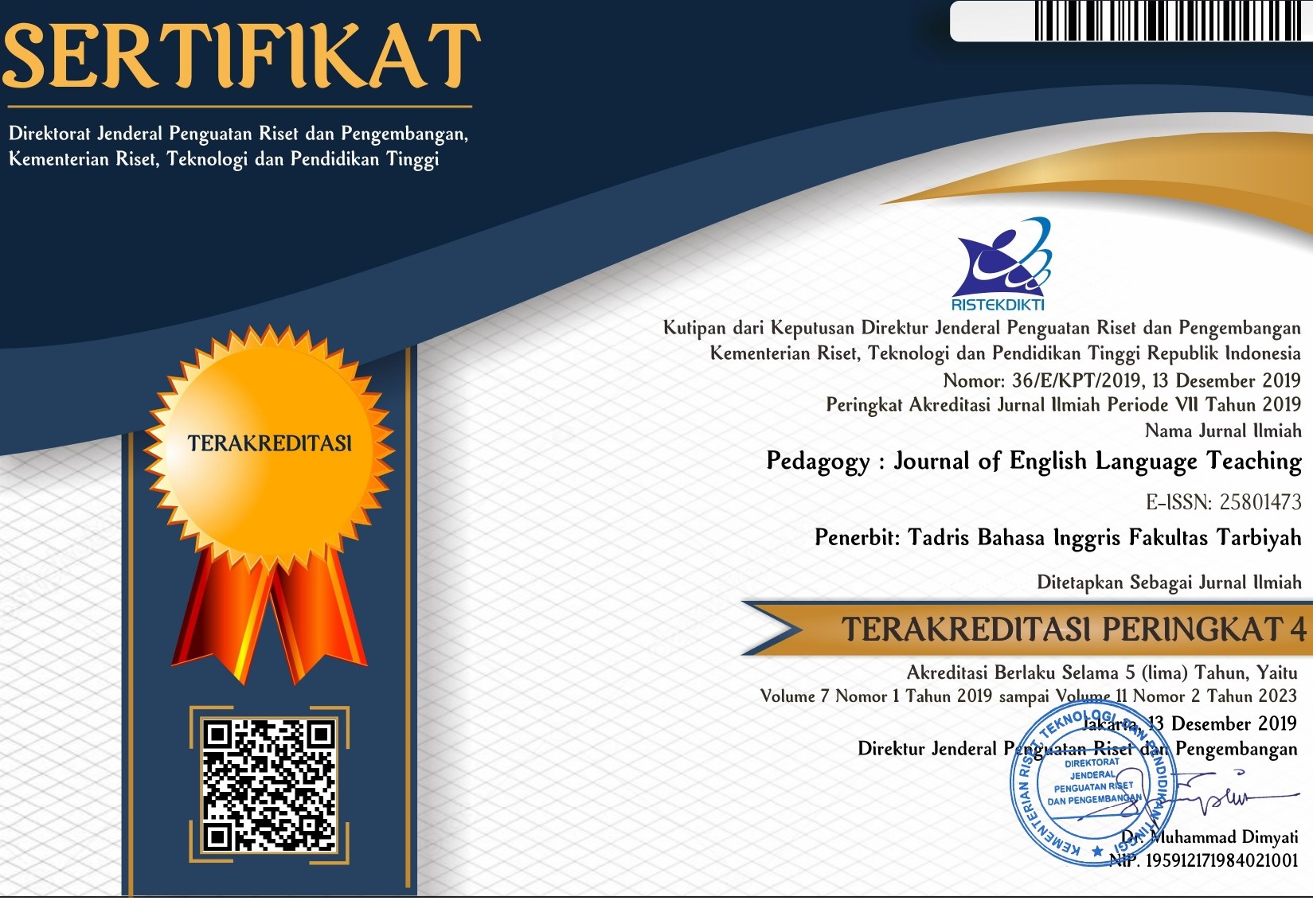Experiential-Learning In Writing Class: A Suggested Teaching Practice For Islamic Universities
DOI:
https://doi.org/10.32332/pedagogy.v6i2.1233Keywords:
Experiential Learning (EL), Reflective-qualitative Study, Writing SkillsAbstract
In global era, mastering language skills as a means for communication, which focus not only on “transmitting knowledge / cognitive aspects” but also “experiencing authentic-language” based on the context, becomes a fundamental demand for all of language learner in certain educational settings as well as writing skill. The ability in producing a scientific writing by considering the context and aspects of writing is very crucial for higher education students. Therefore, this research, which is an ethnographic classroom study in form of reflective-qualitative point of view in period of eight-week-learning meetings, is intended to investigate and design teaching Instruction by using Experiential Learning (EL) in writing class especially for English Education students in Islamic university. In summary, EL may be effectively implemented as an alternative method in writing class by considering some essential points and contexts.















